Affairs: Diplomacy / London
How to do the soft-power shuffle, Brazilian style
Brazil’s diplomats are busy restoring the nation’s image after the Jair Bolsonaro years. We hitch a ride with their man in London.
It’s quite fun, driving around town with the Brazilian ambassador. Is it the calm presence of his gigantic chauffeur, Walter? Or the S-class Mercedes-Benz and its cushy leather interior? Or the fact that it’s one of those London days when the wind is howling and the rain feels as though it’s rising up from the ground, and we’re as dry and toasty as Copacabana sand? Yes, it’s all those things.
But it’s also having a front-row seat to the daily protocol and ceremony of statecraft, with its smiles, back-pats and plentiful ice water. It helps that Antonio Patriota looks like Hollywood’s idea of a distinguished diplomat: trimmed beard, silver hair and a CV that one of his colleagues describes as “pretty much the best of anyone in the Brazilian diplomatic service”. An ambassador is the personification of their country – and when that country is Brazil, and that ambassador is someone like Patriota, smiles light up the road ahead of you.
Or, at least, they did. For most of the past few decades, Brazil’s image abroad was one of fun, sun and insouciance. Then came Jair Bolsonaro. The self-described “tropical Trump” sowed division at home and neglected the country’s international relationships. “The former government did not invest heavily in diplomacy,” Patriota tells monocle. “In fact, it closed a few embassies in Africa. We will reopen them and open new ones.”
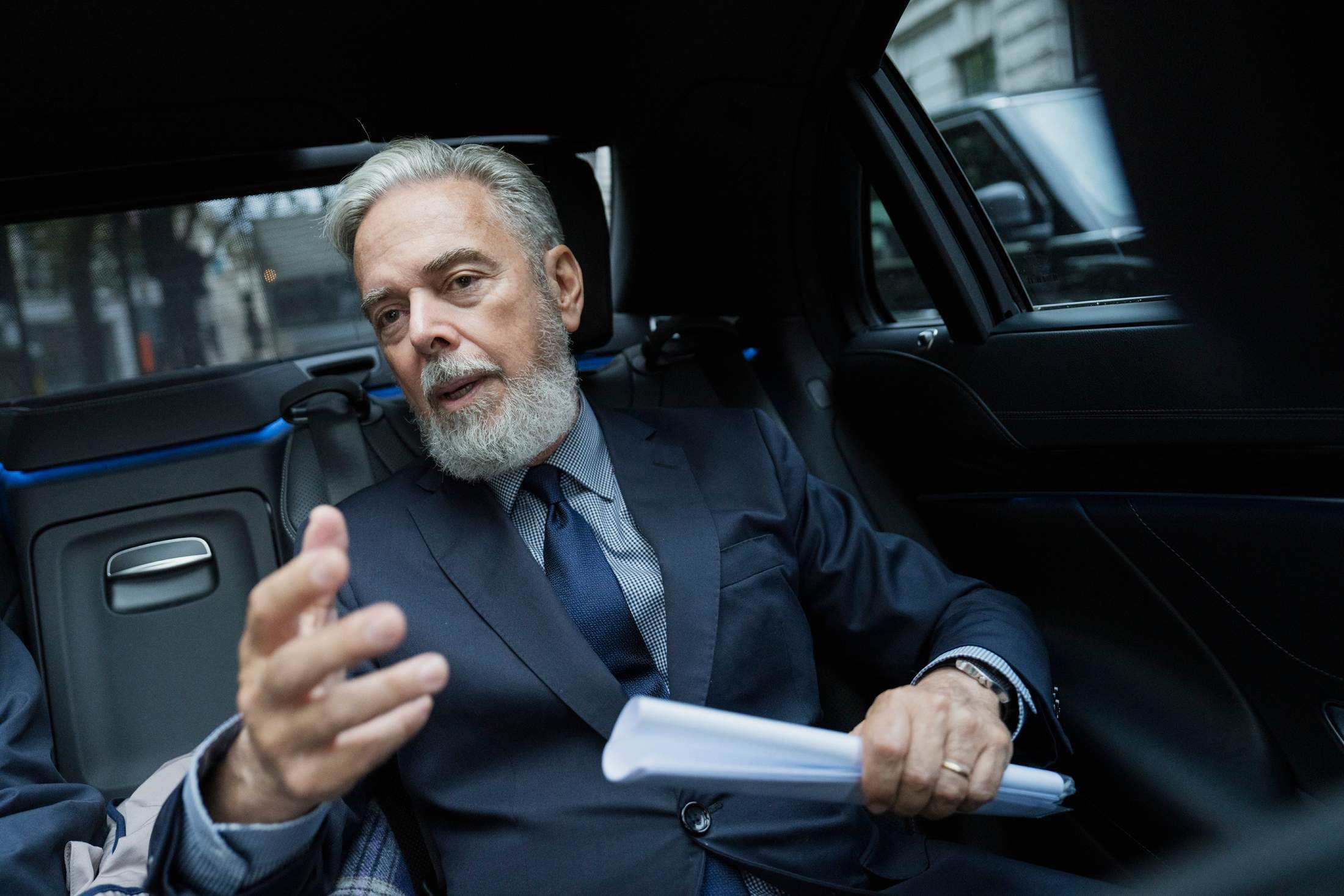
En route to the UK foreign office
10.30
Patriota has a meeting with Anneliese Dodds, the UK’s development minister, at the Foreign, Commonwealth and Development Office on Whitehall. On the way there, he speaks of the Brazilian mindset and the country’s propensity for optimism.
It’s no surprise that Patriota doesn’t exactly see eye to eye with Bolsonaro – he is an ally of the current president, Luiz Inácio Lula da Silva, and served as foreign minister under his protégé Dilma Rousseff. When asked whether he considered quitting if Bolsonaro won a second term in 2023, the ambassador answers, “That’s when I started composing songs.” Patriota is a jazz pianist too.
But the smoky bars will have to wait because Lula, who made a remarkable comeback after being imprisoned on corruption charges, won a third term last year and Patriota was sent to London, where monocle is shadowing him for the day. The UK capital is often seen as a retirement posting: a reward for good service in a city that has plenty of historical prestige but isn’t likely to throw up any dangerous contemporary surprises. Indeed, Patriota will probably retire after this gig but that doesn’t mean he’s flicking through paint samples for his Bahia beach house.
Lula’s return to the Palácio do Planalto has invigorated the 70-year-old diplomat. “From day one, the foreign ministry was ablaze with initiative and trying to re-establish contacts,” he says. Patriota is especially keen on Lula’s phrase “Brazil is back”, which means that after years of introspection and fractious domestic politics, the country is ready to resume its role as a responsible presence on the world stage.
In this regard, November’s g20 summit in Rio de Janeiro should provide a crucial midterm test. At the UK foreign office, during his first engagement of the day, Patriota delivers a letter to Anneliese Dodds, the UK’s minister for development, formally inviting Keir Starmer to the summit. The gathering of the world’s top 20 economies will be an opportunity for Brazil to advance several of its key initiatives in matters social, economic, environmental and, perhaps most saliently, multilateral.
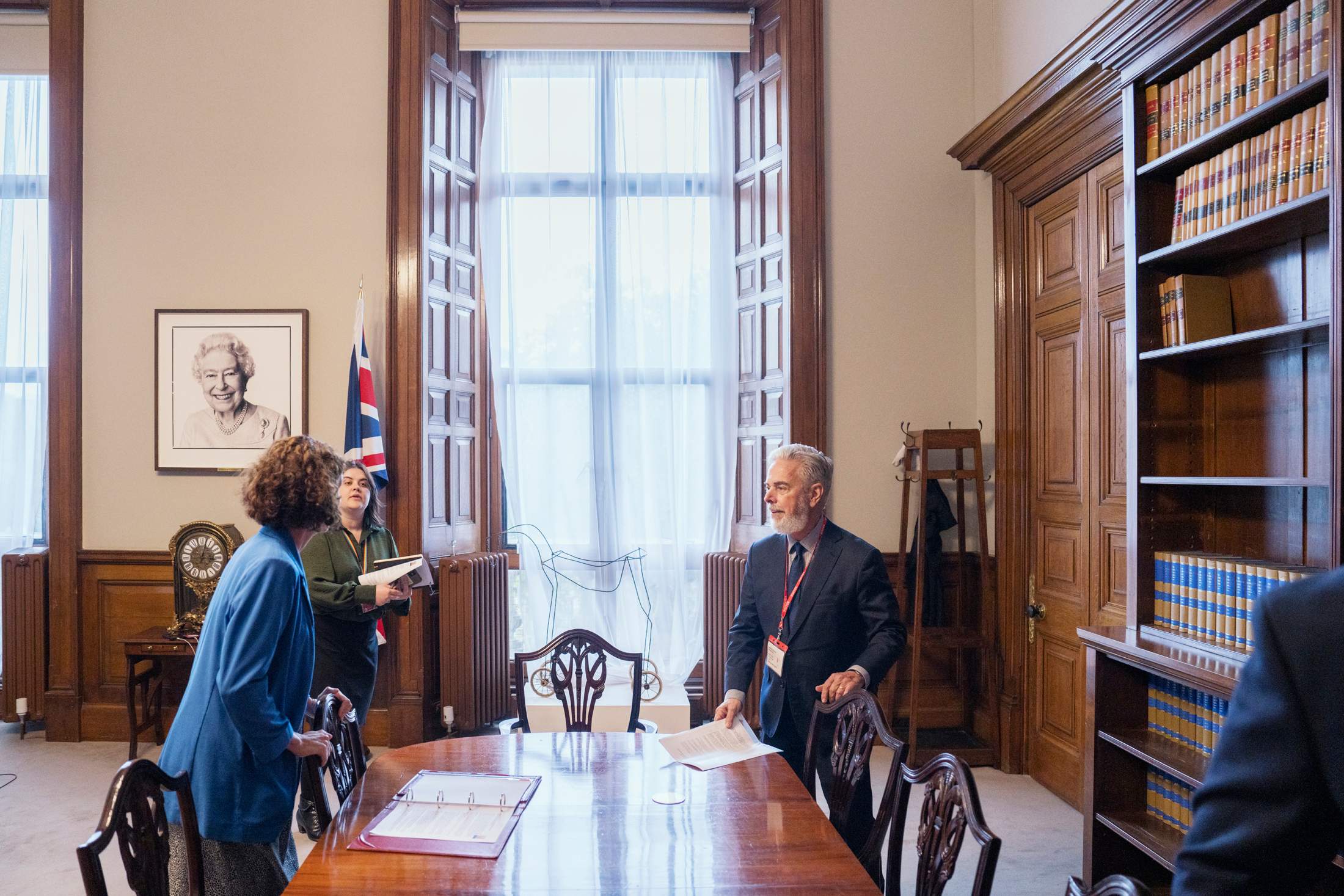
Meeting with Dodds
11.00
Patriota and Dodds discuss their respective countries’ shared priorities, including the environment. “Our collective challenge to confront the climate phenomenon is something that can bring countries together,” he says.
Brazil follows what might be called a “no enemies” doctrine. It explicitly seeks to chart a course of non-confrontation in foreign affairs, focusing on the promotion of trade and the strengthening of bodies such as the UN. That sounds like a noble endeavour but, while the country rarely fights other powers – quite a feat, considering that it shares 10 land borders – it has been criticised for its close relations with Russia and China. Though Brazil has voted twice for UN resolutions condemning Russia’s invasion of Ukraine, Lula has participated in bilateral meetings with Vladimir Putin and co-operates with Moscow and Beijing through the Brics group.
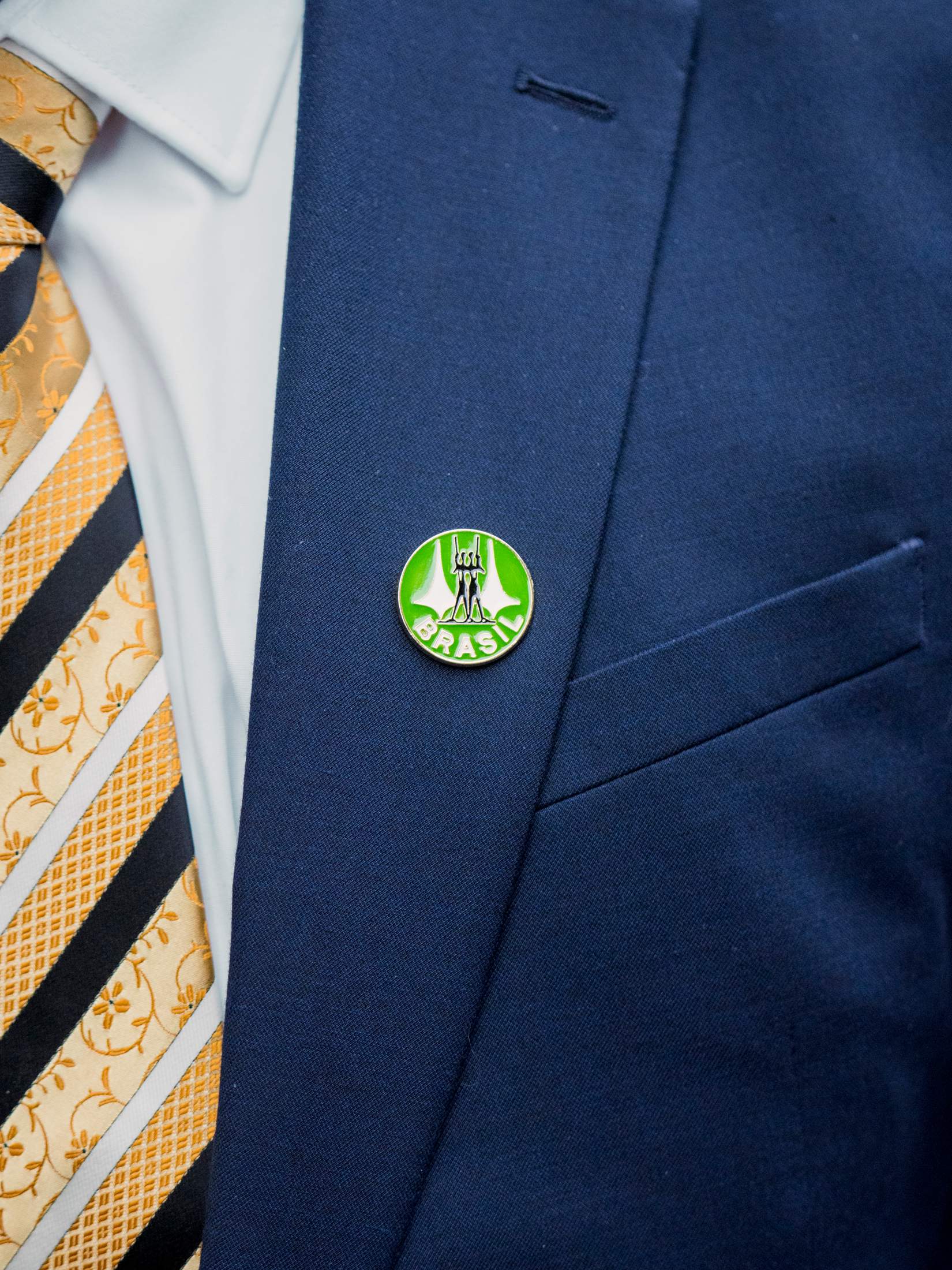
We head to east London’s Whitechapel Gallery, where Patriota receives a private tour of a new exhibition of the work of Lygia Clark, a Brazilian modernist painter and sculptor. Afterwards, monocle asks him whether the world in October 2024 represents a failure of diplomacy. “We are seeing a concerning pattern of disrespect for international law on the part of countries that should be leading by example,” he says. But has there ever been a time in the past 70 years when some state or other hasn’t been flagrantly disregarding international law? And isn’t it true that serial transgressors such as Russia only respect might?
“I can make a comparison with a domestic situation,” he says. “Criminality has always existed but that’s not a reason for you to throw away laws.” Patriota, like his boss, is firm – almost zealous – in his belief that the UN must act as the ultimate guarantor of world peace. To accusations of its toothlessness, he replies with proposals for its reform. “There’s a widespread recognition that the Security Council is not representative of the geopolitical framework of today,” he says, as the Mercedes creeps along with the Embankment traffic. “If you have a permanent-member nucleus of five but there’s no country from Africa, Latin America or the Caribbean, it’s something less than representative of the international community.”
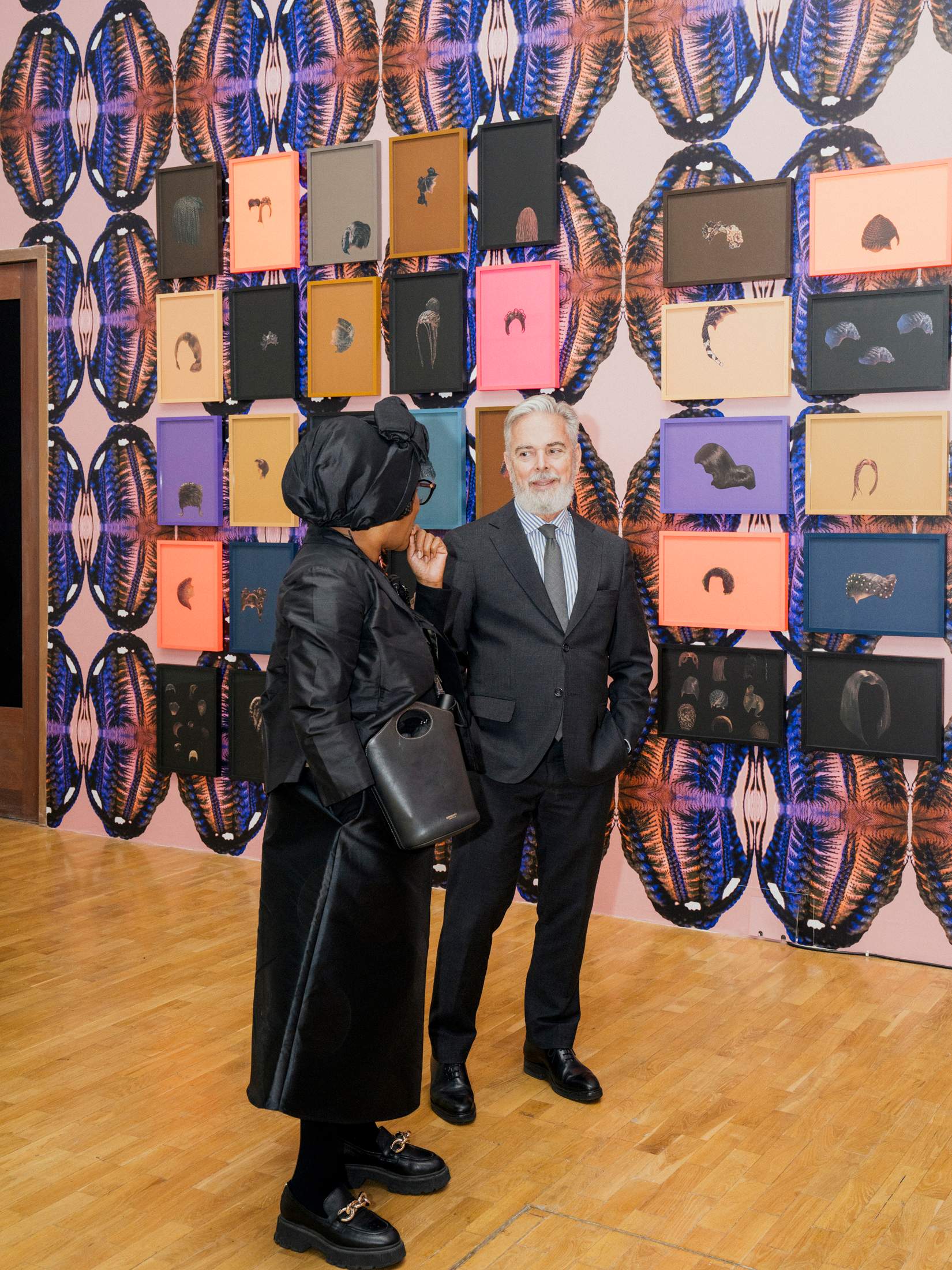
Whitechapel Gallery, east London
14.30
At east London’s Whitechapel Gallery, the ambassador receives a private tour of an exhibition of Brazilian modernist artist Lygia Clark’s work. Giving the tour is UK artist Sonia Boyce, who co-curated the show and has another featuring her own work running upstairs at the same time.
Patriota echoes Lula in advocating for an overhaul of the UN, starting with a review of its charter, “to endow multilateralism with a renewed impetus and credibility”. This is something that the Brazilian president proposed in a speech at the UN General Assembly (unga) in September. At a time when several regions of the world appear to be on the brink of all-out war, Patriota insists that the mere fact that the unga took place is a cause for optimism. “Most world leaders made a point of attending and presenting their views and listening to others,” he says. “The instruments are there. We’re not in a situation like the 1930s, when the League of Nations collapsed and rogue governments were disregarding every rule in the book.” He smiles. “See, no matter how much you try to provoke me, I will give you a positive answer.”
Back at the embassy near London’s unlovely Trafalgar Square, the ambassador gets down to the more quotidian aspects of his job. There is a delegation of businessmen from the Brazilian state of Bahia, discussing collaboration with UK manufacturers in developing renewable energy infrastructure. The conversation ebbs and flows in English and Portuguese, with Patriota playing the charming conductor: he laughs, asks questions, translates and poses for selfies. It is a role that he must play throughout his working day – a group from Brazil’s National Waterway Transportation Agency (antaq) is later made to feel similarly engaged with and listened to.
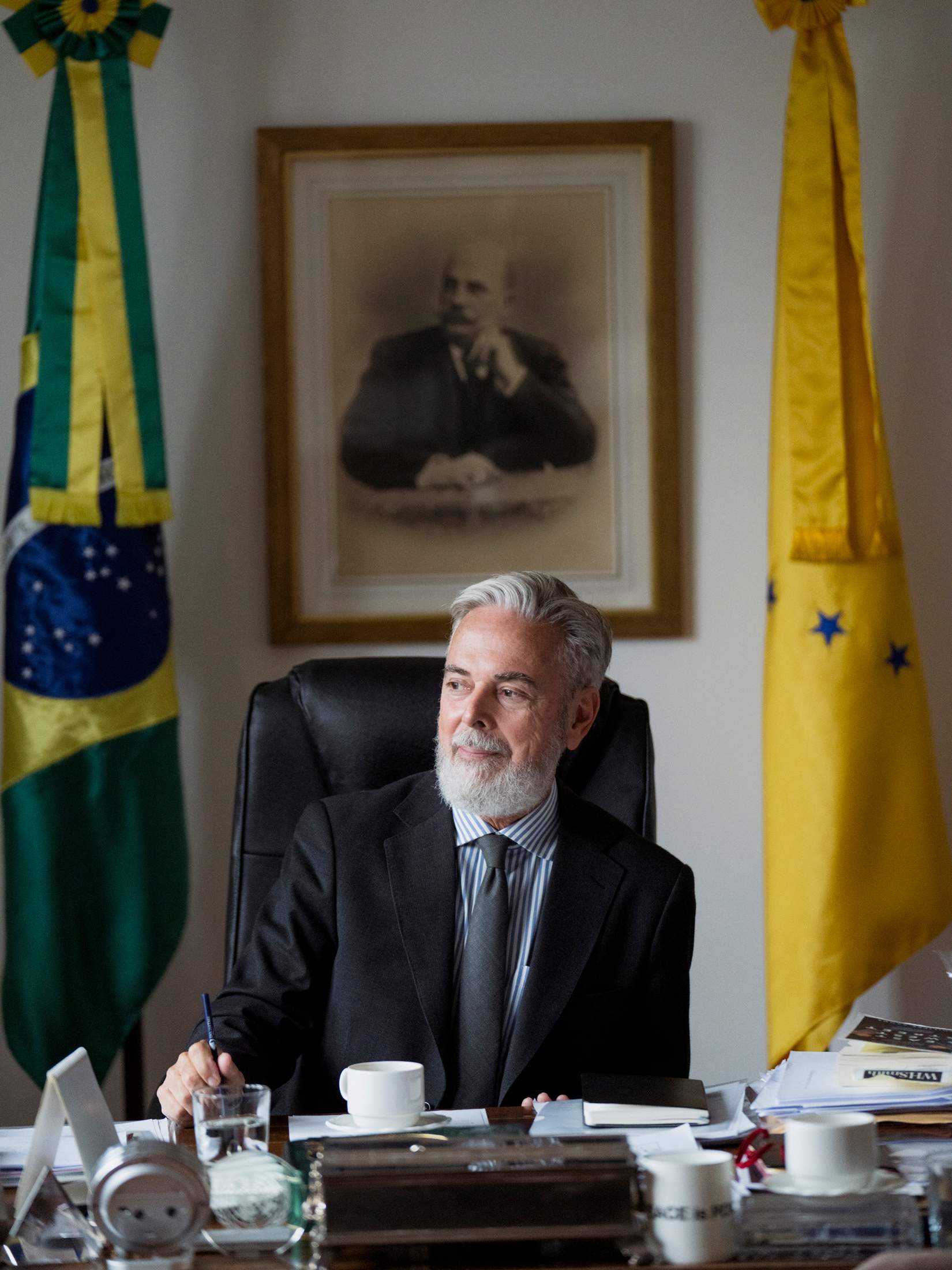
Back at the office
16.00
The ambassador’s desk is covered with books and magazines, including John Maynard Keynes’ The Economic Consequences of the Peace. “Keynes understood what would happen if Germany was humiliated, which is kind of what happened with Nato expansion [and Russia].”
At the ambassador’s residence that evening, as we await guests for a reception to celebrate the opening of the Lygia Clark exhibition, monocle asks him whether he ever gets tired of all the meeting and greeting. “I have been an ambassador for more than 20 years – this is my fifth post,” he says. “I have discovered that I need two evenings a week when I don’t have an event. If I have something every night, I’m very tired by the end of the week and can become a bit unpleasant, which is unusual for me.” At just that moment, a woman enters and calls, “Mr Ambassador.” “Hello,” Patriota cries back, beamingly.
It’s hard work but Patriota is well rewarded for his perma-affability. His residence in London’s Mayfair, 54 Mount Street, was given to the Brazilian government in thanks for its participation on the Allied side in the Second World War. It’s quite the digs. Its exterior is a bit busy, with lots of windows and columns, but inside it’s magnificent: stylishly marbled and wood-panelled, and filled with excellent art, much of it from Patriota’s own collection.

Reception at the residence
18.30
To celebrate the opening of the Lygia Clark exhibition, Patriota hosts a drinks reception at his Mayfair residence. Does he feel at home there after taking up the post last year? “At first, I didn’t. But now we have made a few little touches and hung our paintings.”
Is this the nicest place that he’s ever lived? “No, the nicest was the residence in Rome,” he says. “It was a museum, right on Piazza Navona.” Compared to Renaissance frescoes, the Gainsborough painting that came with the London residence must seem a little measly. “It’s not my favourite but it’s still a Gainsborough,” says Patriota.
Another good thing about the London posting is the city’s profusion of world-class cultural institutions, which makes events such as tonight’s more common. The ambassador enjoys discussing art and recently took a trip with his wife to the Henry Moore Foundation just outside London. But his real passion is for music. “One of the reasons why London is a very attractive place to me is that this is a music city,” he says. “In fact, I’m going to see a fantastic singer who is making a name for herself: Arooj Aftab. Have you heard of her?” No, monocle replies, feeling rather uncool. “Pay attention, as you will hear that name more and more,” advises the ambassador.
Despite the weather, Patriota is clearly a fan of the UK capital. “I like to describe my ambassadorial postings in one word. Rome is magical. Cairo is mysterious. And London is hip.” But is it still important? “I divide the 140 or so Brazilian embassies by importance according to the number of diplomats who are sent to each,” he says. “The three largest are Buenos Aires, Washington and the mission to the UN. After that, you have several slightly smaller ones that are still among the 15 largest – the big capitals of the world, such as Paris, London, Beijing, Tokyo, Moscow. The posting here isn’t so much a question of reward as of enhanced responsibility.”
There are several ways in which being in London can help to advance Brazil’s agenda. “In the UK, you have very influential media,” says Patriota. “So, it’s an opportunity to correct misperceptions and explain the ‘Brazilian specificity’.” This is a phrase that the ambassador keeps coming back to throughout the time that we are with him. In his mind, Brazil’s Brazilian-ness is a matter not of stereotypical things such as football, samba or caipirinhas, but of its long-held commitment to diplomacy, multilateralism, advancing equality and peace.
As a diplomat, these are the things that make his job worthwhile and rewarding. When we ask what Brazil has achieved in this regard, he replies, “What we have achieved is a certain respectability when we speak about human rights.” Whether or not that’s the case, it’s clear that the ambassador’s belief in the ability of humanist principles and virtues such as debate and discussion to solve the world’s issues puts him among the idealists in his profession – or, at least, the optimists. “Yes, I am an optimist,” he says. “And my surname is ‘Patriota’ and my deputy’s is ‘Brasil’, so we’re well suited to the task.”


